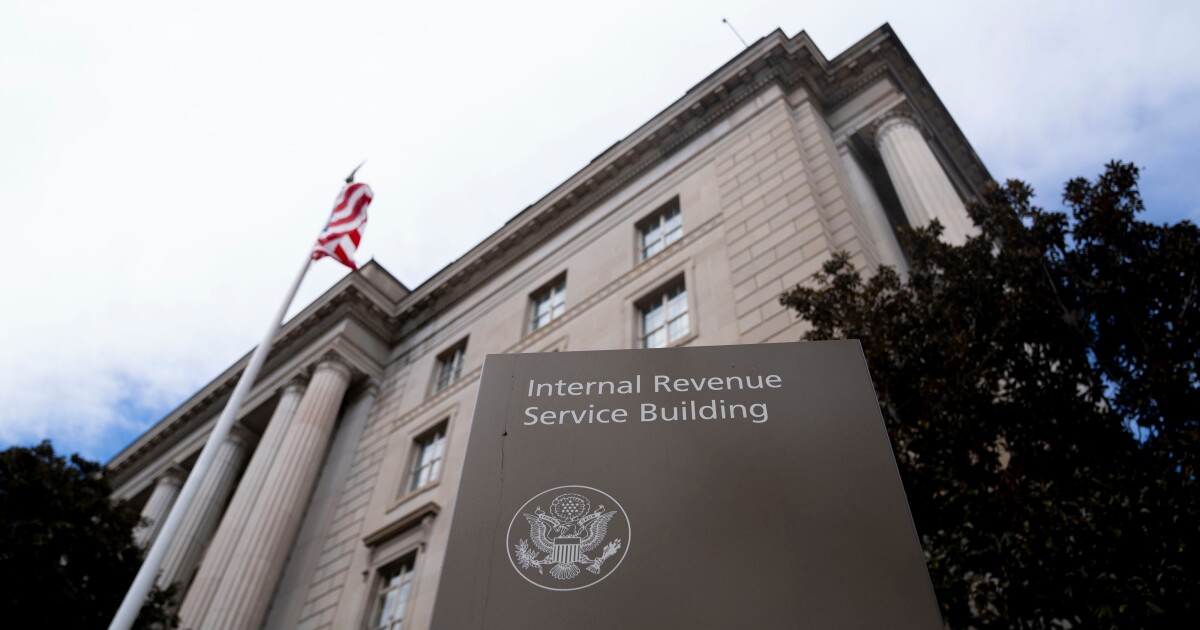The Internal Revenue Service is expected to lean more heavily on artificial intelligence technology as it carries out widespread layoffs.
A report, released last week by the Treasury Inspector General for Tax Administration, found the IRS could leverage its examination results when using AI to select cases for further scrutiny and improve its processes. TIGTA noted that the IRS’s current tax return selection models have resulted in a high percentage of examinations that were completed with no change to the tax liability. However, that means resources are wasted on unproductive examinations and compliant taxpayers are unnecessarily burdened. AI models can improve the process the IRS uses to select cases for examination.
TIGTA assessed how effectively the IRS’s Large Business and International Division and the IRS Small Business/Self-Employed Division employ AI models to identify returns and issues for examinations.
The IRS started using AI several years ago and revamped how it selects tax returns and identifies issues for examination by using AI models that have been trained on current tax return data instead of relying on past audit results.
The report noted that historical examination results are informative and should be used by the IRS to monitor and improve AI models when available. For instance, the IRS could utilize examination results to improve return classification and return selection AI models that could potentially identify new areas of noncompliance. The IRS should also consider evaluating ensemble machine-learning for improving the accuracy of identifying noncompliant taxpayers and narrowing the tax gap. “Ensemble learning is an approach that combines multiple machine-learning algorithms to potentially improve performance by making more accurate predictions of which tax returns and/or issues to examine,” said the report.
The IRS has not set up processes to evaluate whether the performance of AI models is better than prior methods or is achieving the intended objectives, according to the report. But not evaluating performance results runs contrary to federal AI key practices to ensure accountability and responsible AI use.
The report recommended that the IRS’s chief tax compliance officer, in partnership with the chief data and analytics officer where appropriate, require division commissioners to use governance processes to ensure that examination performance results are part of the monitoring and continuing refinement of the return classification and selection AI models. They should also refine the AI models by incorporating ensemble machine-learning when appropriate; and establish a measurement plan with appropriate metrics to monitor AI models to ensure that they are achieving the expected benefits and to correct any model drifts.
The IRS agreed with all three of TIGTA’s recommendations, subject to staffing constraints and anticipated new guidance from the Treasury Department on AI governance, and stated it has already tested and implemented ensemble methods in these models, where appropriate.
“The IRS is committed to continuously improving the case selection process,” wrote Reza Rashidi, acting chief data and analytics officer. “This includes making use of well-established processes to evaluate model performance.”
She added that the IRS is currently awaiting guidance from the Treasury regarding new policies and priorities for AI governance.
IRS layoffs
The IRS is expected to rely further on AI as it continues cuts to its workforce. According to another report released earlier this month by TIGTA on the cutbacks, over 11,400 IRS employees have either received termination notices as probationary employees or voluntarily resigned, representing an 11% reduction to the agency’s workforce. That number is expected to be higher by now, despite ongoing lawsuits and court decisions. The separations disproportionately impacted IRS revenue agents, who often handle audits and examinations, and found that approximately 31% of revenue agents, or 3,623 people, left the IRS under the program.
“About 11,000 employees have been let go since Inauguration Day, and that’s an 11% drop from the numbers in January,” said Anne Gibson, a senior legal analyst at Wolters Kluwer, earlier this month. “And it’s also been reported, more than 20,000 IRS employees have accepted this new second deferred resignation offer. That is really a lot of the workforce that’s already gone at this point, and that we’re potentially going to see leaving, and there have been reports of increased wait times, for instance, on the telephone lines.”
People are also concerned about how quickly tax refunds will be issued this year, she noted. “There’s definitely some concern out there about that,” said Gibson. “It’s also important to note that there have been other reports that the administration’s overall goal is to eventually reduce the IRS workforce down to about 60% or even 50% of the January 2025 levels. That would end up being a total of only 50,000 or 60,000 employees. It’s also important to keep in mind that, generally speaking, people have felt that the IRS has been understaffed and underfunded for the past decade. Although the numbers went up a little bit after the Inflation Reduction Act allowed for some more hiring, most people didn’t think it was yet at the level that they would want to see it at. So this is really a big reduction, which is likely to make things in all areas of the IRS a little more difficult or take longer.”
The cutbacks have led the IRS to drop many of the audits it already had in progress.
“There have been news reports about audits that are in process or that are even close to being wrapped up being canceled because members of that audit team were let go and they just didn’t have the staff to carry them on,” said Gibson. “I imagine we’ll see more of that. Now, with those reductions, I think we’ll probably see fewer audits going forward than we would have otherwise seen because a large number of the staff that’s been let go, and reports are the targeted cuts going forward, a lot of those are in compliance, so that’s going to directly impact the ability of the IRS to take on audits and cases.”


 Economics1 week ago
Economics1 week ago
 Accounting5 days ago
Accounting5 days ago
 Economics6 days ago
Economics6 days ago
 Economics1 week ago
Economics1 week ago
 Personal Finance6 days ago
Personal Finance6 days ago
 Accounting6 days ago
Accounting6 days ago
 Economics1 week ago
Economics1 week ago
 Finance5 days ago
Finance5 days ago











